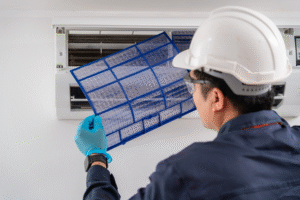The Pros and Cons of Gas vs. Electric Stovetops

The Pros and Cons of Gas vs Electric Stovetops
When it comes to choosing a stovetop for your kitchen, you have two main options: gas or electric. Both have their pros and cons, so it’s important to weigh your options carefully before making a decision. In this article, we’ll take a closer look at both gas and electric stovetops, as well as the pros and cons of each. So, which is right for you? Let’s find out.
What is a Gas Stovetop?
A gas stovetop is a type of stove that uses natural gas as its fuel source. Gas stove top are very popular in many parts of the world, and they have a number of advantages over other types of stoves. Gas stovetops are typically more powerful than electric stovetops, so they can heat food more quickly. They also tend to be more efficient, since all of the heat generated by the burner is used to cook the food. And because gas is a clean-burning fuel, it doesn’t produce any harmful emissions. There are some disadvantages to gas stovetops, however. They can be more expensive to install than electric stovetops, and they require a reliable source of natural gas. Additionally, if there is a gas leak, it can be dangerous.
What is an Electric Stovetop?
An electric stovetop is a kitchen appliance that uses electricity to heat food. Electric stovetops come in a variety of shapes and sizes, but all have a heating element that heats up when electricity is applied to it. The heat from the element then cooks the food. Electric stovetops are becoming increasingly popular in homes because they are seen as being more efficient than gas stovetops. They also offer a number of other advantages, such as being easier to clean and requiring less ventilation than gas stovetops.
The Pros of Gas Stovetops
There are several advantages to using a gas stovetop over an electric one. First, gas stovetops heat up much faster than electric stovetops. This is because the gas ignites immediately when it comes into contact with the burner, whereas electricity takes longer to heat up the coils. This means that you can start cooking your food sooner on a gas stovetop. Another advantage of gas stovetops is that they are more precise in terms of temperature control. With an electric stovetop, it is difficult to control the temperature precisely, as the heat is not distributed evenly.
The Cons of Gas Stovetops
There are a few disadvantages that come with using a gas stovetop. One is that they can be quite expensive to install. If you don’t already have a gas line running to your kitchen, you’ll need to have one installed, which can be costly. Additionally, gas stovetops require regular maintenance and cleaning in order to keep them functioning properly. And if something does go wrong with your gas stovetop, it can be difficult and expensive to repair.
Conclusion
After reading this article, you should be able to make a more informed decision about which type of stovetop is right for you. If you are looking for a stovetop that will heat up quickly and evenly, then a gas stovetop may be the better option. However, if you are concerned about safety or saving energy, then an electric stovetop may be the better choice.








